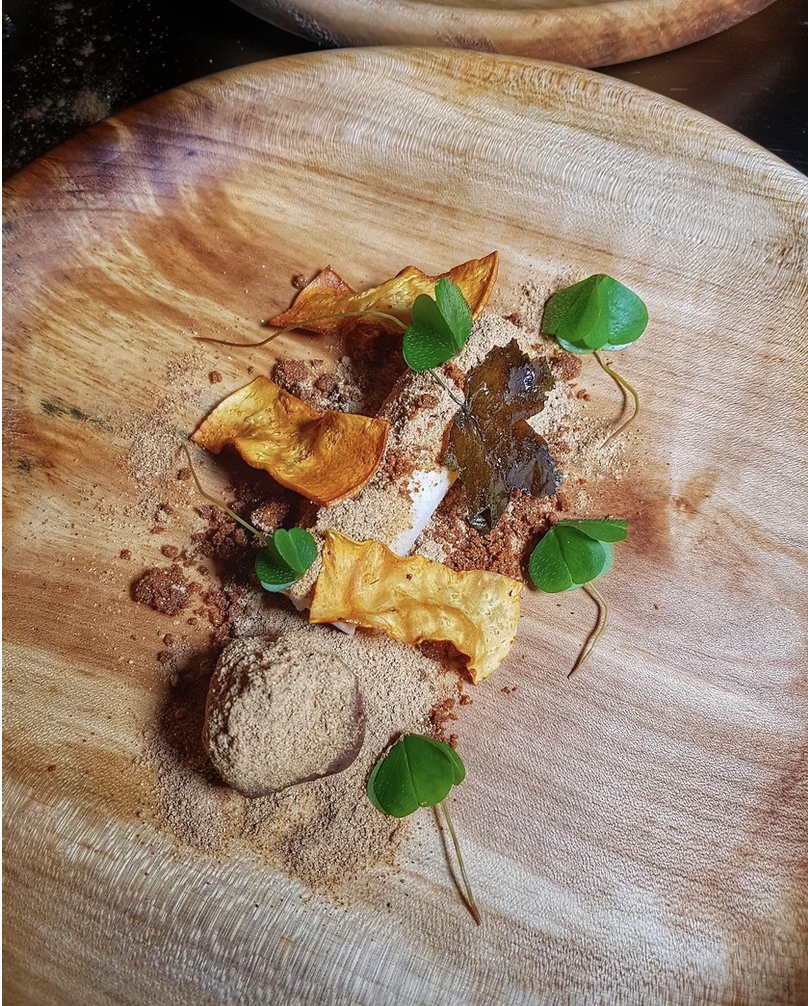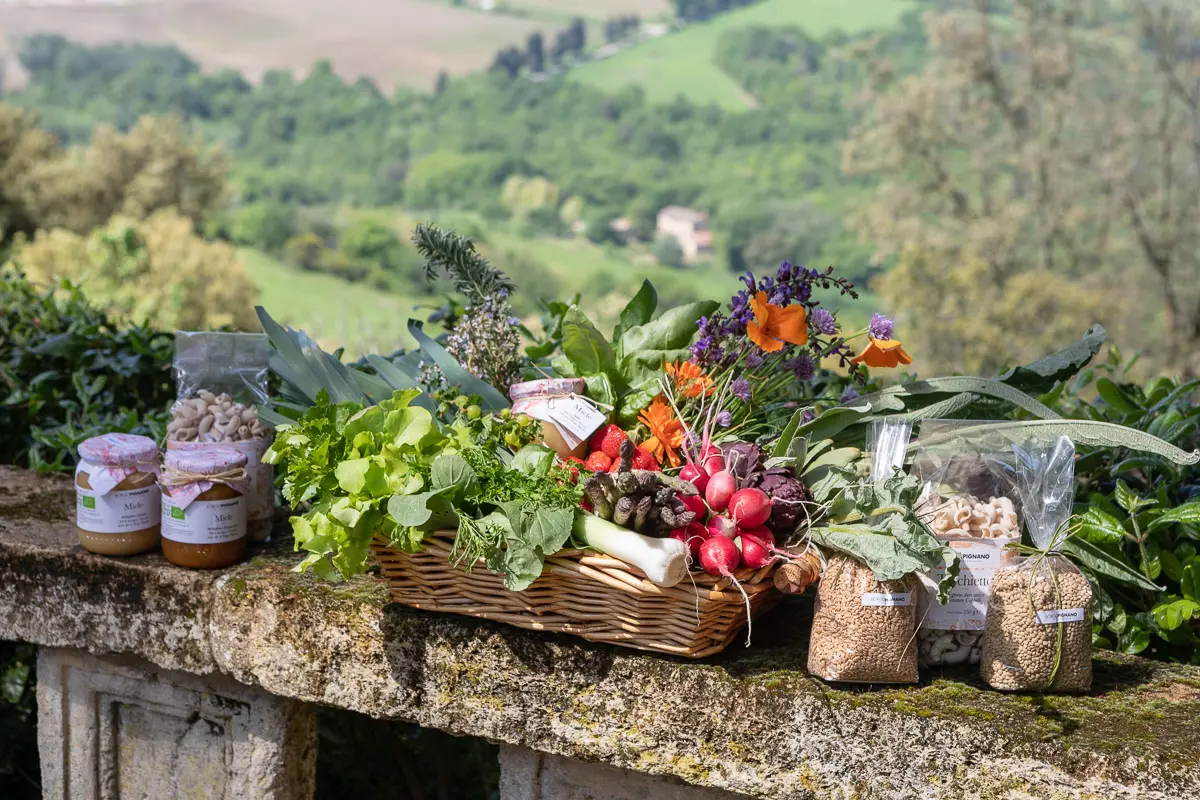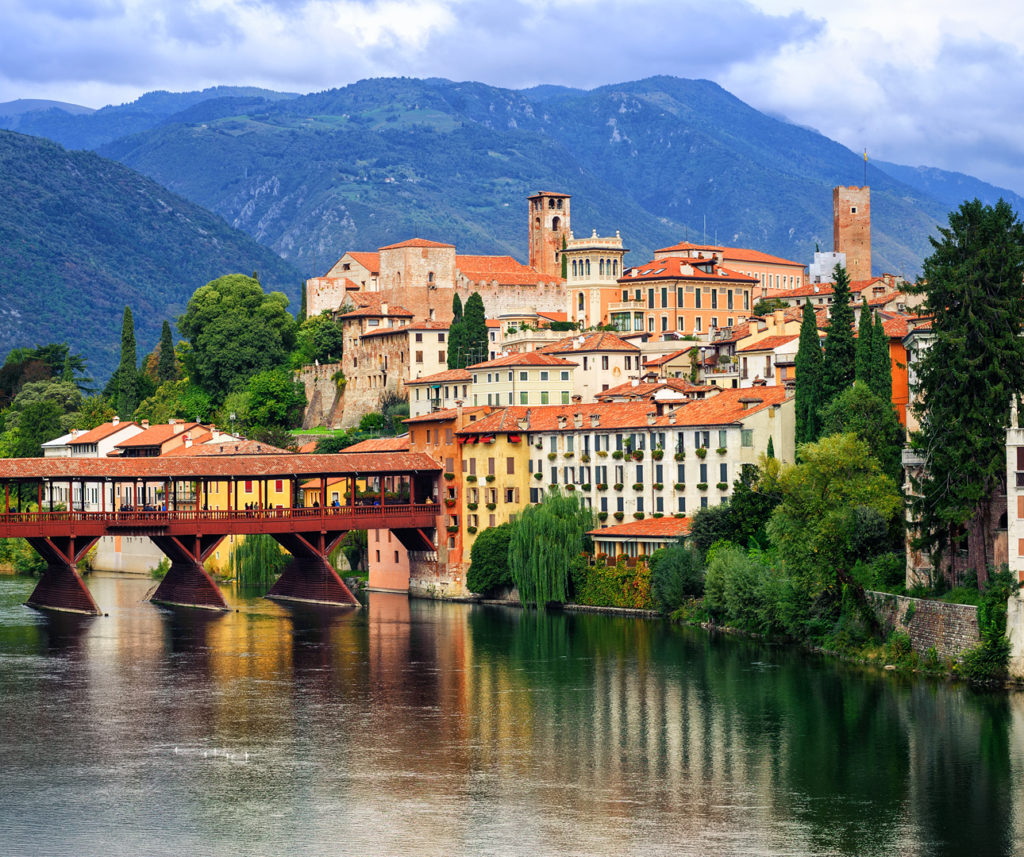Farm-to-table, locally-sourced, and eco-conscious eating have transcended trend to become a powerful initiative around the globe. Sustainable and regenerative travel is especially food-focused today, with the appetites of fine diners and casual foodies alike preferring eco-friendly fare.
Michelin Green Star and green clover designations were launched in 2020 to celebrate establishments that strive for sustainability in both their practices and on their plates. Many restaurants fit Michelin’s new standard of environmental excellence, with some using centuries-old philosophies and techniques that honor the land. Here’s a roundup of 15 eco-friendly restaurants which are leading the way for sustainable dining around the world.
FREA – Berlin, Germany
View this post on Instagram
FREA’s motto is “full taste, zero waste” so it’s no surprise that this eco-friendly restaurant in Berlin has a mature knowledge of what they can and cannot do with the scraps of their bounty. It earned a Michelin Green Star for its sustainable cuisine that features regional ingredients that are organic, seasonal, and meat-free. They’ve taken the soul of their eco friendly restaurant into their own hands with in-house composting, then ensue that this recycled waste is used to its fullest potential by shipping it back to their producers every night.
Discover Berlin on: Best of Germany
Molskroen – Ebeltoft, Denmark
View this post on Instagram
Molskroen updates its food and sustainability policies to showcase how it’s prioritizing a green point of view in all elements of the restaurant. Included in the previous years was an honorable commitment to animal welfare by refusing to feature veal and foie gras on its menu, as well as a decision to restrict table centerpiece decor to wild in-season or dried off-season local flowers. Rather creatively, all staff workwear is now created from old tablecloths and bed-linens, all of which are laundered by a service using a closed-circuit system that reuses its own water supply.
Read next: How to Embrace the Slow Food Movement While Traveling
Konoba Mate – Korčula, Croatia
View this post on Instagram
Homestyle cooking and a family-focused approach to sustainable practices has earned Konoba Mate one of the first Michelin Green Stars in Croatia. Though only two decades old, the recipes found at this eco-friendly restaurant are reminiscent of generations past. Each member of the family contributes to sustainable farming, whether that be the matriarch rearing goats and producing cheese or the patriarch perfecting drying prosciuttos year after year.
Discover Croatia on: Eastern Capitals & the Dalmatian Riviera
Central – Lima, Peru
View this post on Instagram
Did you know that current no.1 restaurant in the world is also one of the most eco-friendly?
At Central, sustainability is a core pillar of the restaurant’s identity. So much so, that in 2019 Virgilio Martínez’s restaurant achieved a sustainability rating of 98% at Latin America’s 50 Best Restaurants 2019. No restaurant has gotten a higher score in any of the 50 Best lists.
The world’s best restaurant opened back in 2008 with a mission to champion ethical consumption. Martínez traveled across Peru’s agricultural lands, from the Amazon to the villages across the coast and mountains. He saw how Indigenous growers at the start of the supply chain had no voice or power in the industry. He noted that “The system is also very European, based on seasonality and style, but it doesn’t work for these lands, for these people.”
Seeking to make a change, Central supports the Peruvian community. It locally sources all of its ingredients, and personally works with growers from across the country based on the relationships Martínez made personally on his travels. Waste produced by the restaurant is recycled and composted, and each dish is based on ingredients that are researched and preserved by Martínez’s research team ‘Mater Iniciativa’.
Discover Peru on: Peru with Machu Picchu
Mühle – Warth, Switzerland
Though the chef will locally source an ingredient if absolutely necessary, the kitchen at Mühle is fervently determined to maintain a 0-Kilometre Menu at all times. This restaurant, joining a hotel and museum in a former Carthusian monastery, rarely looks beyond its 100 hectare farm for inspiration. More than 200 products find their way from the on-site farm, bakery, fish farm, butchery, and dairy onto the menu. From the grapes fermented in the wine cellar to the cream used for the homemade ice cream, Mühle leverages its vast estate to keep as much food as possible within footsteps of the kitchen.
Explore Switzerland on: Glorious Switzerland
Also read: Thinking Swisstainable with Switzerland Tourism’s Pascal Prinz
Faula Ristorante – Cerreto Langhe, Italy
View this post on Instagram
Casa di Langa, a five-star resort boasting the world’s first truffle concierge, started with sustainability in mind. The hotel and accompanying restaurant, Faula Ristorante, integrated itself into an abandoned, half-finished hotel site within minimal wasteful alterations. Set only minutes away from the International Alba White Truffle Fair, Faula Ristorante embraces its environment without exploitation. A greenhouse and biodynamic garden are tended to by the Chef Daniel Zeilinga himself. Guests can even hunt responsibly for their own black and white truffles in the resort’s protected forest then sample their finds in the eco-friendly restaurant, creating a low-impact activity that fosters the area’s tourism with unwavering promotion for sustainable truffle sourcing.
Indian-born chef Deepanker Khosla made his bones in hotel kitchens and traveling food trucks, before converting his home into a restaurant on the forefront of Bangkok’s gastronomy scene. Evoking the flavors of his homeland of India, expect an incredible tasting menu of pan-Indian cuisine. Guests start their dining experience with a tasting tour of the back garden, filled with herbs, edible flowers and vegetables. Look out for the large seafood tanks too, which are feeding freshwater into the reclaimed-wood planters. Rainwater is collected as well as scraps from the kitchen, used as either fish food or fertiliser. What doesn’t come from the back garden is sourced from Khosla’s organic farm in Chiang Mai as well as suppliers around Thailand – whose soil is rigorously inspected by the chef and his team. With South-East Asia’s waste problem, it’s people like Khosla who are leading the way into a more sustainable future.
Friðheimar – Reykholt, Iceland
Friðheimar in Reykholt, Iceland, understands the environmental challenges of sustainable farming in a harsh climate. The fact that they grow multiple varieties of tomatoes year-round is almost as impressive as their unique approach to horticulture. The farm and greenhouse are powered by both hydro and geothermal energy, borrowing from Iceland’s abundant resources to severely undercut their carbon footprint. The carbon dioxide naturally produced by the geothermal steam isn’t spared, either, as it’s used to enhance photosynthesis. As for pest control, they rely on mirid bugs to feast on the pests that harm tomato plants.
Good to know: Why Going Guided is the Best Way to Travel with Dietary Requirements
Azurmendi – Biscay, Spain
View this post on Instagram
Holding a coveted three Michelin stars, Azurmendi is known as one of the most sustainable and eco-friendly restaurants in the world. Housed within a bioclimatic building, Azurmendi appears at home amongst the native vineyards. Rain water is recycled and reused for everything from garden watering to toilet flushing while their control of sunlight and ventilation remove the need for air-conditioning and most artificial light. Azurmendi has planted nearly 1,000 trees to offset their CO2 emissions and gladly provides area farmers with fresh fertilizer via its organic compost.
Try Spanish cuisine on: Easy Pace Spain, Best of Spain & Portugal
Saint Peter – Sydney, Australia
View this post on Instagram
Saint Peter’s scale-to-tail philosophy was thought up by sustainable-seafood advocate Josh Niland, who even wrote a book on the subject – The Whole Fish. If Niland is the preacher, Saint Peter is the church, where lesser-known wild-caught Australian species are ceremoniously shucked, filed, scaled and grilled – all with minimal waste. Indeed, 90% of the fish or more is used – included the eyeballs, guts and blood – compared to the average of 50% in other restaurants. Such a philosophy has birthed dishes like kingfish stomach in fish-heart and offal sauce, or cured fat-belly swordfish bacon. Waste is almost like a dirty word in Saint Peter, which is why fish bones are ground up into a powder and sauced, or leftover fish fat is used in chocolate, and why fish eyes are dehydrated and fried into potato-chip-style snacks. Don’t be squeamish, you’ll get amazing dishes like sea-urchin crumpets and swordfish katsu – and it tastes real good.
Septime – Paris, France
Excessive, in the most positive of ways, is the best word to describe Septime’s approach to running an eco friendly restaurant. Proudly displaying both a Michelin Star and Green Star, Septime deliberately goes above and beyond the definition of stability to in any way it can. It only sources fish from fishing vessels no larger than 12m, only local and native pig breeds are slaughtered, and chooses to overpay small farmers to promote fair treatment.
Read next: 6 of the Top Michelin Star Restaurants in Europe
Head to France on: Normandy, Brittany & The Loire Valley
Fyn – Cape Town, South Africa
View this post on Instagram
Fyn’s name comes from the Fynbos ecosystem, located in the Western and Eastern Cape provinces of South Africa. It’s home to the Cape Floristic Region and 9,000 unique local species, like dune spinach, which the restaurant combines with Japanese cooking methods. The result? A gorgeous South African-Japanese menu that’s rich in originality.
But the forward-thinking restaurant doesn’t stop there. The team behind Fyn lead the way in sustainable practices too, personally visiting every supplier they work with. They’ve therefore built personal relationships with some of South Africa’s highest quality sustainable farms and suppliers.
One problem in South Africa is water scarcity, so Fyn trains all its staff in water management. They also provide young people from disadvantaged backgrounds with opportunities for training in the culinary arts, in partnership with Infinity Culinary Training in Cape Town.
In both ingredient-sourcing and ethical practices, Fyn has been exemplar in sustainable dining – earning it the Flor de Caña Sustainable Restaurant Award in 2023.
Silo – London, England
View this post on Instagram
The world’s first zero waste restaurant, Silo proves that restaurants in even the largest cities can embrace the principles of sustainability. What began with an idea to build a restaurant without a single trash can in sight turned into a mission to innovate food without insulting the environment. Silo uses its own flour mill for wheat production and its brewery has live cultures naturally fermenting beverages. All furniture is upcycled; all plates were once plastic bags. All restaurant products are delivered in reusable containers, leaving only minimal waste created in the eco-friendly restaurant for the compost bin.
Head to England on: Country Roads of Wales, Devon & Cornwall
Annwn – Narberth, Wales

Fine dining and foraging are synonymous at Annwn, a Welsh restaurant keen to remind patrons not to forget that all of the ingredients needed for a healthy, life-sustaining meal can be found right in their own backyards. Guides accompany gastronomers into the countryside, wandering through meadows, woodlands, coastlines, or estuaries depending on the season. Guests learn not only how to identify wild ingredients but also how they can be sustainably harvested to not damage the ecosystem. The foraging experience comes full circle at the dining table where seasonal finds like shoreline plants and wild garlic fill the menu.
Related content: The Dos & Don’ts of Foraging Your Own Food
Try Welsh fare on: Gems of Britain
Al Fresco – Italy




